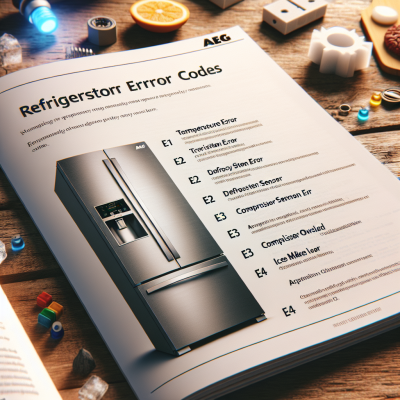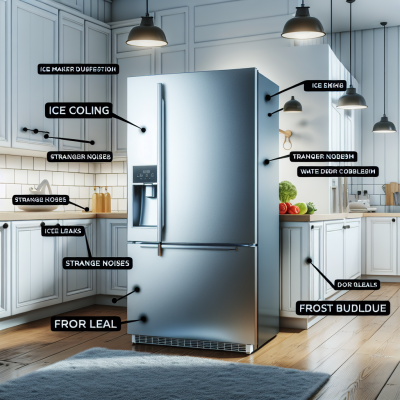Fast & Reliable John Lewis Refrigerator Repairs - Call Now! |
Repair
Basic DIY Repairs
Owning a refrigerator means that from time to time, you may encounter minor issues that you can handle yourself, saving both time and money. Here’s a guide to assist you with these small repairs.
Tools Needed for Minor Fixes: Before you begin any repair, ensure you have the following tools at your disposal:
- Screwdriver Set: Different sizes of Phillips and flathead screwdrivers are essential for opening panels or tightening screws.
- Multimeter: Useful for diagnosing electrical issues to check voltage, current, or resistance.
- Pliers: Handy for grabbing, twisting, or bending components.
- Adjustable Wrench: Necessary for tightening or loosening nuts and bolts.
- Level: Ensures your refrigerator is perfectly balanced to avoid operational issues.
- Torch/Flashlight: Good lighting helps you see internal components clearly.
- Safety Gloves: Protect your hands from sharp components and electrical hazards.
Safety Precautions: Working on your refrigerator can be safe and straightforward as long as you adhere to some basic safety principles:
- Unplug the Refrigerator: Always disconnect the appliance from the electrical supply before starting any repairs.
- Avoid Wet Conditions: Ensure your working environment is dry to avoid short circuits and potential electric shock.
- Use the Correct Tools: Using the wrong tool can damage parts or cause injury. Always select the tool suited for the tasked requirement.
- Follow Manufacturer Guidelines: Refer to your user manual for specific procedures as per the model.
- Test Power Safely: When checking for power, do so with care, using the multimeter to verify electrical function after issues are resolved.
When to Call a Professional
While some repairs can be handled independently, certain situations will require professional expertise. Here is how to discern when it's time to reach out to a service technician.
Identifying Beyond-DIY Issues:
- Complex Electrical Problems: If the issue lies within the wiring or critical electronic components.
- Refrigerant Leaks: This involves handling substances that require specific knowledge and equipment.
- Cooling System Failures: Issues such as compressor problems or evaporator malfunctions need professional troubleshooting.
- Persistent Issues: If a problem persists after multiple attempts to fix, a professional diagnosis might be needed.
Cost Considerations for Hiring Repair Services: Hiring a professional can vary in cost, influenced by several factors such as:
- Nature of the Problem: More complex repairs tend to require more time and parts, increasing costs.
- Parts Replacement: Some parts might be expensive and add to the overall repair cost.
- Service Charges: Professionals may have a standard service fee, inclusive of labor and expertise.
- Warranty Status: If your appliance is under warranty, services might be free of charge. Always verify this before arranging for repairs.
Warranty Information
Understanding the warranty of your John Lewis refrigerator is crucial as it can help you avoid unnecessary expenses for repairs that are covered by the manufacturer.
Understanding Your Warranty:
- Coverage Details: Ensure you know what components and types of damages are covered under your warranty.
- Duration: Be aware of how long your warranty lasts from the date of purchase or delivery.
- Conditions and Exclusions: Familiarize yourself with any stipulations that could void your warranty, such as unauthorized alterations or misuse.
Steps to Request Warranty Repairs:
- Document the Problem: Keep a record of what went wrong and any steps you've taken to rectify the problem.
- Contact Authorized Service Centers: Reach out to authorized John Lewis repair centers to maintain warranty coverage.
- Provide Required Information: Have your purchase receipt, model number, and serial number ready when contacting support.
- Follow Repair Instructions: Adhere to any instructions given by the support team to facilitate the repair process.
By understanding these repair guidelines, including the limitations of DIY repairs, when to call for professional help, and making the most of your warranty, you'll ensure that your refrigerator is always in optimal working condition.




